Ok folks, as promised earlier, here's the first instalment of images of Orthodox Christmas.
First off, a Blessed Christmas to all Christians who celebrate this great Feast of the Nativity according to the Julian calendar. The images below are of the Christmas liturgies celebrated by the Greek Orthodox in the Holy Land, principally by the Greek Patriarch Theophilus III of Jerusalem in the Church of the Nativity in Bethlehem.
Orthodox Christians watch the Greek Orthodox Christmas Eve procession from the roof the Church of the Nativity, traditionally believed to be the birthplace of Jesus Christ, in the West Bank town of Bethlehem, Sunday, Jan. 6, 2008. The Greek Orthodox Church marks the occasion according to the old calendar, two weeks after Western denominations. (AP Photo/Nasser Shiyoukhi)
Greek Orthodox Priests walk from the Church of the Nativity, traditionally believed to be the birthplace of Jesus Christ, during the procession for Greek Orthodox Christmas Eve in the West Bank town of Bethlehem, Sunday, Jan. 6, 2008. (AP Photo/Tara Todras-Whitehill)
Greek Orthodox Patriarch of Jerusalem Theofilos III (R) leads the Orthodox Christmas procession in the Church of the Nativity in the West Bank town of Bethlehem January 6, 2008. Some Orthodox Christians follow the old Julian calendar and celebrate Christmas on January 7. REUTERS/Eliana Aponte (WEST BANK)
Orthodox Christians watch Greek Orthodox Priests in the Church of the Nativity, traditionally believed to be the birthplace of Jesus Christ, during the procession for Greek Orthodox Christmas Eve in the West Bank town of Bethlehem, Sunday, Jan. 6, 2008. The Greek Orthodox Church marks the occasion according to the old calendar, two weeks after Western denominations. (AP Photo/Nasser Shiyoukhi)
A Greek Orthodox priest takes part in the Orthodox Christmas procession in the Church of the Nativity in the West Bank town of Bethlehem January 6, 2008. Some Orthodox Christians follow the old Julian calendar and celebrate Christmas on January 7. REUTERS/Eliana Aponte (WEST BANK)
Greek Orthodox Patriarch of Jerusalem Theofilos III, center, arrives at the Church of the Nativity, traditionally believed to be the birthplace of Jesus Christ, during the procession for the Greek Orthodox Christmas Eve in the West Bank town of Bethlehem, Sunday, Jan. 6, 2008. (AP Photo/Tara Todras-Whitehill)
Greek Orthodox priests stand in the Church of the Nativity during the Orthodox Christmas procession in the West Bank town of Bethlehem January 6, 2008. Some Orthodox Christians follow the old Julian calendar and celebrate Christmas on January 7. REUTERS/Eliana Aponte (WEST BANK)
Greek Orthodox Patriarch of Jerusalem Theofilos III, left, and clergymen pray in the Grotto, in the Church of the Nativity, traditionally believed to be the birthplace of Jesus Christ, during the procession for the Greek Orthodox Christmas Eve in the West Bank town of Bethlehem, Sunday, Jan. 6, 2008. (AP Photo/Tara Todras-Whitehill)
Orthodox Christian pilgrims pray in the Church of the Nativity, traditionally believed to be the birthplace of Jesus Christ, during the Orthodox Christmas Eve in the West Bank town of Bethlehem, Sunday, Jan. 6, 2008. The Eastern Orthodox Churches mark the occasion according to the old calendar, two weeks after Western denominations. (AP Photo/Muhammed Muheisen)
Orthodox Christian pilgrims gather to enter the Grotto during Orthodox Christmas services at the Church of Nativity, traditionally believed to be the birthplace of Jesus Christ, in the West Bank city of Bethlehem, Monday, Jan. 7, 2008. Christmas falls on Jan. 7 for Orthodox Christians in the Holy Land, Russia and other Orthodox churches that use the old Julian calendar instead of the 16th-century Gregorian calendar adopted by Catholics and Protestants and commonly used in secular life around the world. (AP Photo/Muhammed Muheisen)
Worshippers attend an Orthodox Christmas mass in the grotto, believed by Christians to be the birthplace of Jesus, in the Church of the Nativity in the West Bank town of Bethlehem January 8, 2008. Some Orthodox Christians follow the old Julian calendar and celebrate Christmas on January 7. REUTERS/Ammar Awad (WEST BANK)
Greek Orthodox Patriarch of Jerusalem Theofilos III (C) and Palestinian President Mahmoud Abbas (L) attend mass for Orthodox Christmas Eve in the Church of the Nativity in the West Bank town of Bethlehem January 7, 2008. Some Orthodox Christians follow the old Julian calendar and celebrate Christmas on January 7. REUTERS/Loay Abu Haykel (WEST BANK)
Palestinian President Mahmoud Abbas (R) attends mass for Orthodox Christmas Eve in the Church of the Nativity in the West Bank town of Bethlehem January 7, 2008. Some Orthodox Christians follow the old Julian calendar and celebrate Christmas on January 7. REUTERS/Loay Abu Haykel (WEST BANK)
Orthodox Christian pilgrims light candles in the Church of the Nativity, traditionally believed to be the birthplace of Jesus Christ, during the Orthodox Christmas Eve in the West Bank town of Bethlehem, late Sunday, Jan. 6, 2008. The Eastern Orthodox Churches mark the occasion according to the old calendar, two weeks after Western denominations. (AP Photo/Muhammed Muheisen)
A woman takes part in an Orthodox Christmas morning mass in the Church of the Nativity in the West Bank town of Bethlehem January 8, 2008. Some Orthodox Christians follow the old Julian calendar and celebrate Christmas on January 7. REUTERS/Ammar Awad (WEST BANK)
A cross is seen as Orthodox Christian pilgrims pray during Orthodox Christmas services at the Church of Nativity, traditionally believed to be the birthplace of Jesus Christ, in the West Bank city of Bethlehem, early Monday, Jan. 7, 2008. Christmas falls on Jan. 7 for Orthodox Christians in the Holy Land, Russia and other Orthodox churches that use the old Julian calendar instead of the 16th-century Gregorian calendar adopted by Catholics and Protestants and commonly used in secular life around the world. (AP Photo/Muhammed Muheisen)
Palestinian Greek Orthodox Christians attend the Christmas day mass at a church in Gaza City, Monday, Jan. 7, 2008. Christmas falls on Jan. 7 for Orthodox Christians in the Holy Land, Russia and other Orthodox churches that use the old Julian calendar instead of the 16th-century Gregorian calendar adopted by Catholics and Protestants and commonly used in secular life around the world. (AP Photo/Khalil Hamra)
Palestinian Greek orthodox clergymen attend the Christmas day mass at a church in Gaza City, Monday, Jan. 7, 2008. Christmas falls on Jan. 7 for Orthodox Christians in the Holy Land, Russia and other Orthodox churches that use the old Julian calendar instead of the 16th-century Gregorian calendar adopted by Catholics and Protestants and commonly used in secular life around the world. (AP Photo/Khalil Hamra)
I'm off with the Jesuit novices tomorrow, so come back on Friday for the Russian, Serbian, Georgian, Macedonian and Coptic Orthodox celebrations. Hope you enjoyed the photos.
![[Unam Sanctam]](https://blogger.googleusercontent.com/img/b/R29vZ2xl/AVvXsEiymQ2adTjpZ1ABhPBbBBquiPCxeQrc4Jy_97vOikT0wGQeJleriiXQy6ebnb0jrYe-TfvcK77txStB4aIwVAdD41ZdMkVfNtFGC0JX6LBV9B8mfeRZaIAM7Sj-011ag3DiKQzv/s1600/headerdivinemercy.jpg)














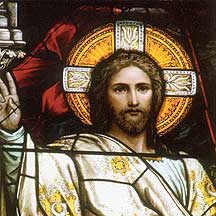







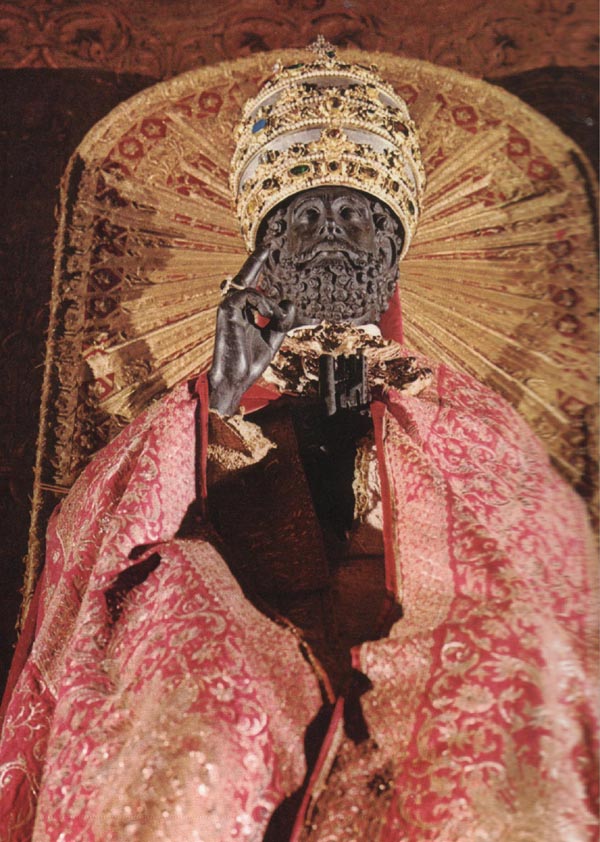
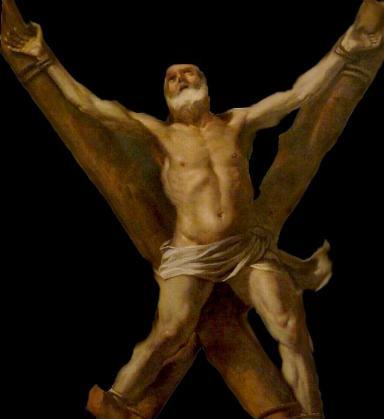




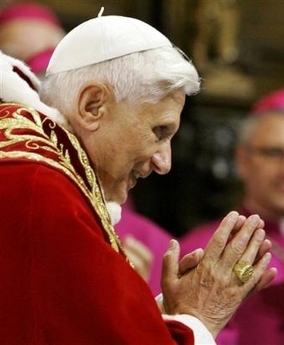






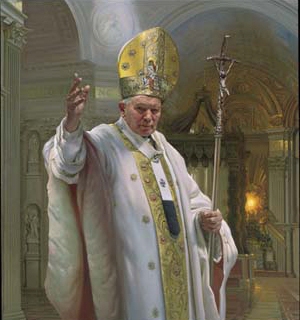
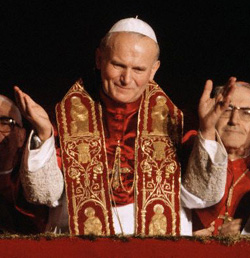
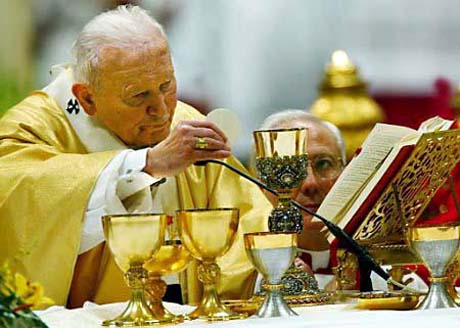







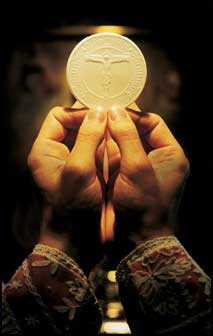
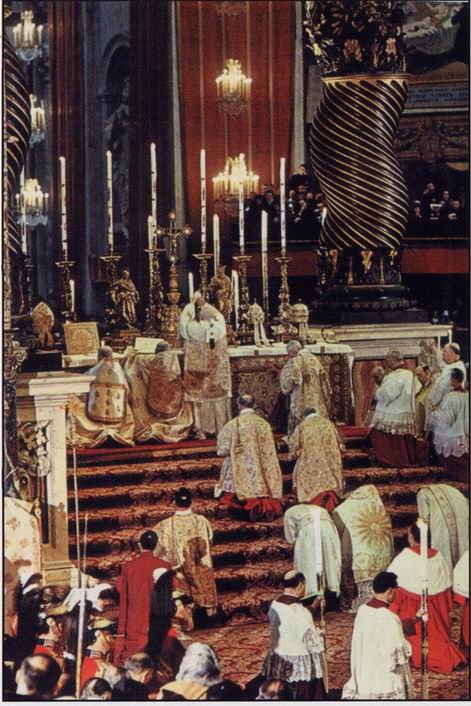

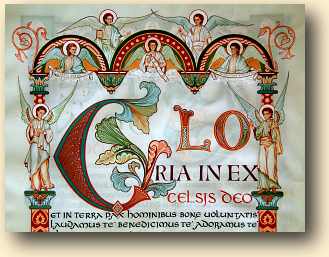

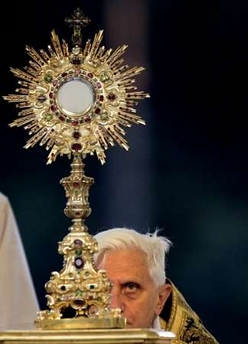


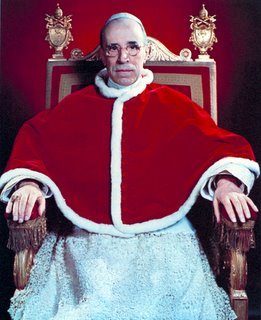




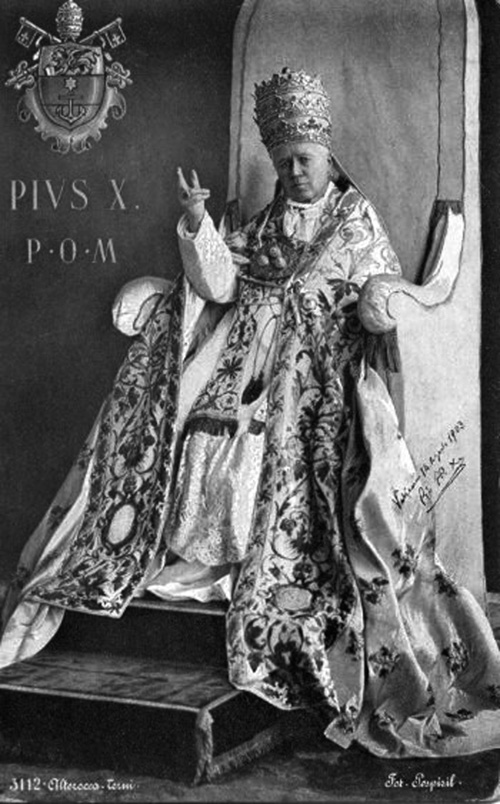



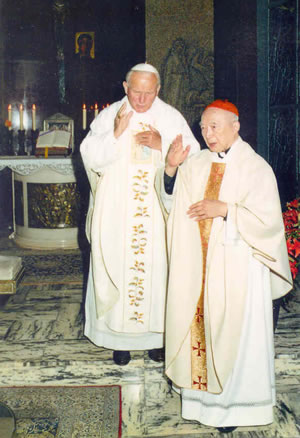






3 comments:
Wonderful pictures! I wish there were a greater presence of liturgical fas in the Roman Liturgy... About the only time one sees them is at a Papal Mass, and we all know that they have also all but disappeared from them, too. :)
WOW!
I very much indeed enjoyed the photos!
Post a Comment